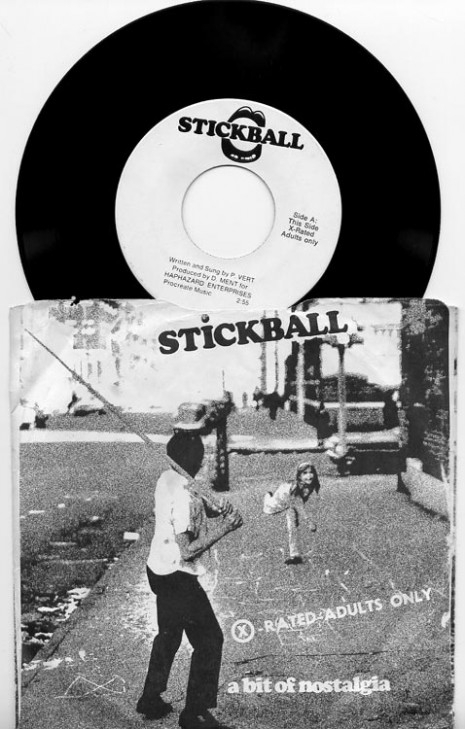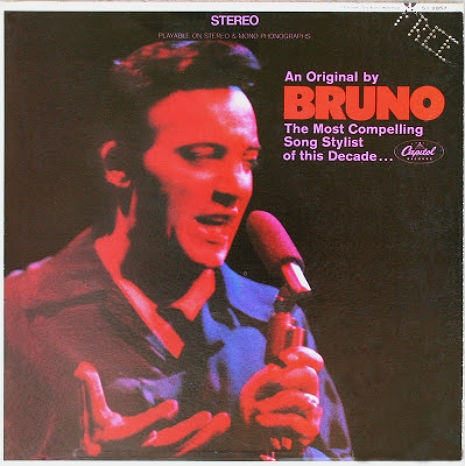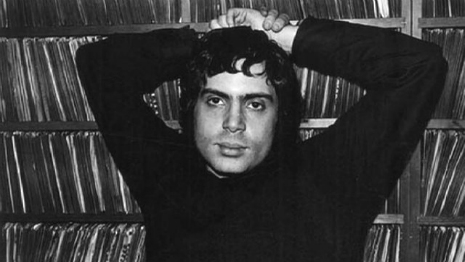
“Stickball” is an improbably strange—and very NSFW—adult novelty record from the early ‘70s, apparently the work of singer Tony Bruno working under the pseudonym “P.Vert.” I found my copy at Downstairs Records in New York (which was actually upstairs) at some point in the mid-80s and I still have it. It’s a 45rpm single backed with another song—a pretty-sounding ballad—called “Fuck Me Forever” by Connie Lingus.
Wouldn’t you buy that? Well I did.
About a week later I was in the same store with my old friend Nate Cimmino and he scored a copy of “Stickball,” too. Nate worked part-time behind the counter of the legendary New York record store Bleecker Bob’s, which was owned by the notorious Bob Plotnik, a man who was not afraid to tell you exactly what he thought of you, let’s just say. A cantankerous fellow. Some might—charitably—describe him as an “obnoxious asshole.” (Like the real life “Soup Nazi,” he was even parodied on Seinfeld.)
One day I went into the shop to say hi to Nate and Bleecker Bob was there. He said “Metzger, you’re so fuckin’ smug, you think you know everything, but YOU DON’T KNOW SHIT. I am the mogul of moguls. Name me any record title and I will tell you the artist. Name me any artist and I will tell you at least one of their song titles.”
Nate and I looked at each other, each knowing what the other was thinking.
“Stickball,” I replied confidently. It was the single most obscure thing I could think of, sure to stop him dead in his tracks.
Bleecker Bob laughed his loudmouthed Brooklyn wiseguy laugh.
“YOU FUCKIN’ ASSHOLE!! I PRODUCED FUCKIN’ P.VERT! YOU TRIED TO STUMP ME BY NAMING MY OWN FUCKIN’ RECORD! HAHAHAHAHAHA….”
He spun around and pulled a copy right off the shelf. The producer’s credit he pointed to on the label read “D.Ment.”
What were the odds?
He gloated, but I thought that it was extremely funny and so did Nate. I mean seriously, what were the odds of that occurring? And to be bested by an asshole like Bleecker Bob in such a manner of my own choosing, ultimately? Well, try having that experience in a New York record store these days, kids! Priceless!

So I had posted the above text on Dangerous Minds back in 2010. We’ve changed content management systems since then, but not long after I originally posted it, Tony Bruno himself left a comment saying that he’d never even heard of Bob Plotnik and that he didn’t produce that single or to his knowledge have anything whatsoever to do with it, which to my mind makes the story even better.
“Stickball” by P.Vert
“Fuck Me Forever” by Connie Lingus:






